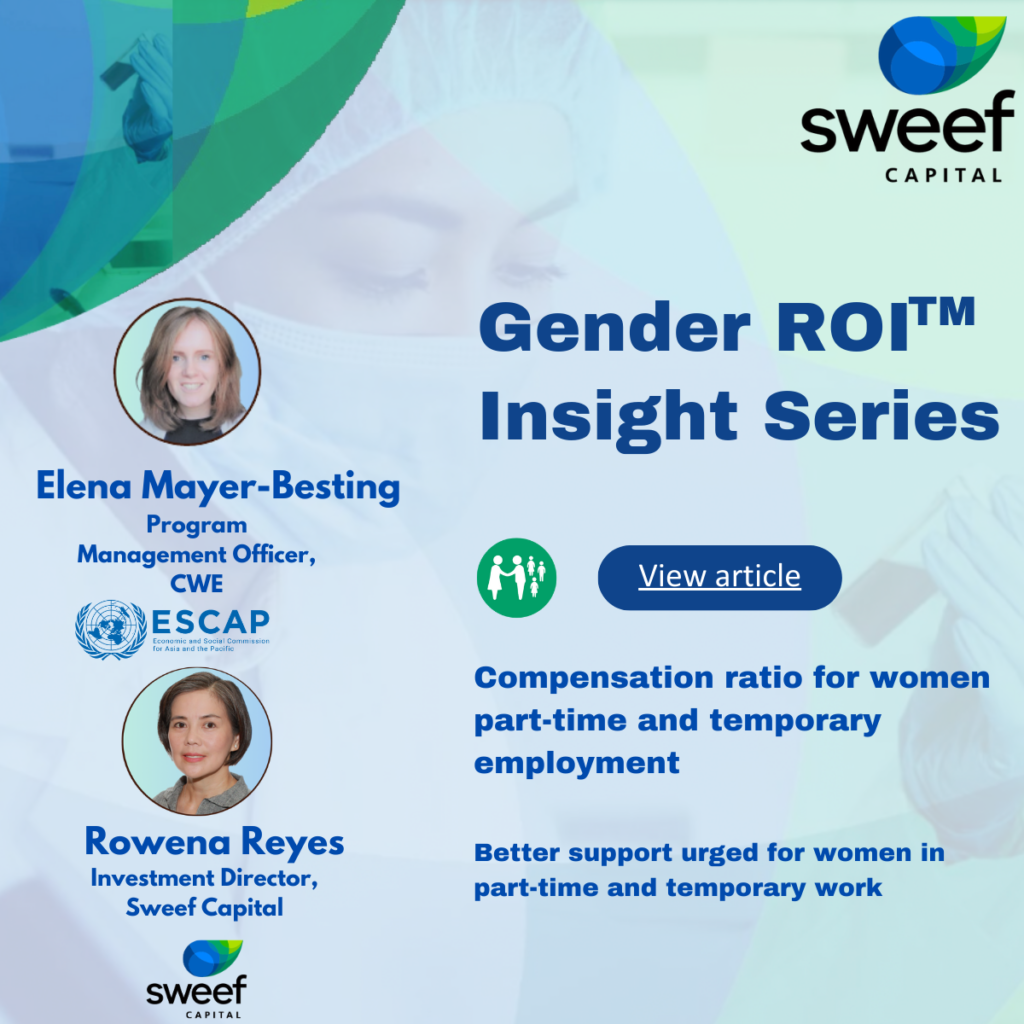Part-time and temporary work models and can be advantageous if they enable a better work-life balance, but the reality is that such work models often manifest in lower wages, a lack of social protection systems, fewer training opportunities and poorer career prospects.
It’s a scenario women know all too well, according to Sweef Capital Director Rowena Reyes, who urges organisational leaders to ensure women and other vulnerable workers aren’t penalised or marginalised for taking on work that may be considered ‘second class’. Elena Mayer-Besting, Program Management Officer for UN ESCAP’s Catalyzing Women’s Entrepreneurship program, agrees, saying new business models are emerging that demonstrate the value of fair compensation for women in flexible work arrangements.
Read more in this article about inclusive business practices that fairly value women’s contribution in part-time and temporary employment, part of the Sweef Capital Gender ROITM Insight Series.
